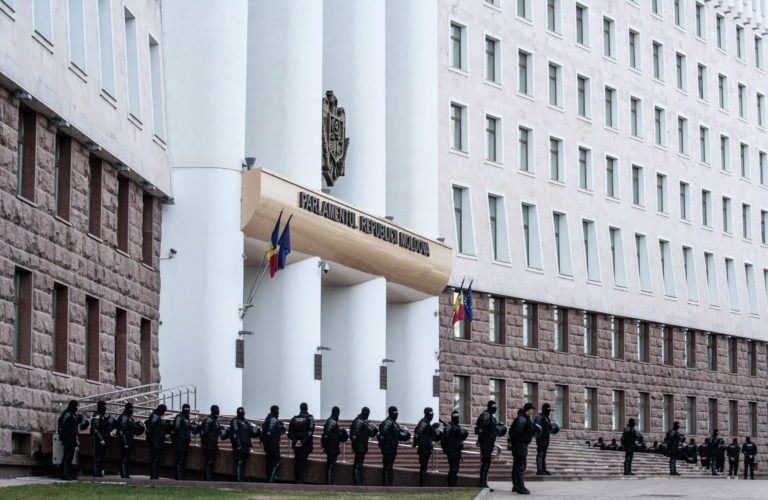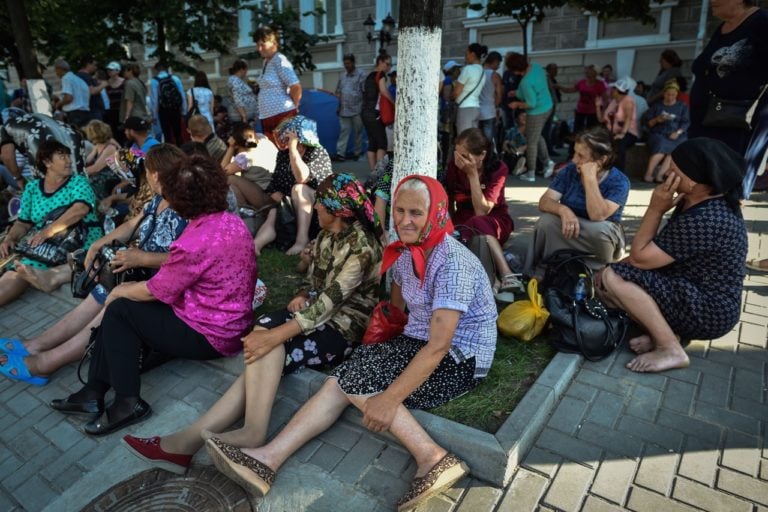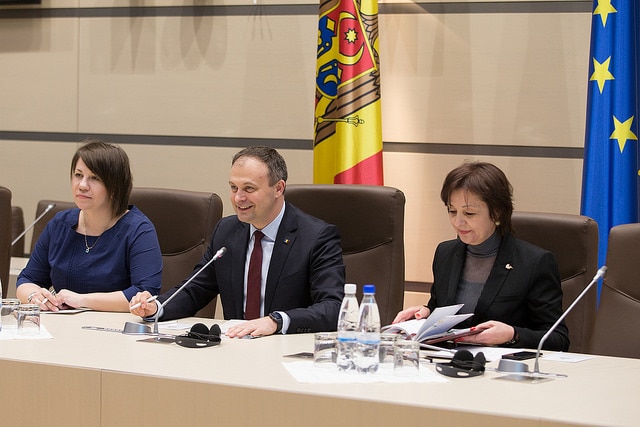The Independent Journalism Center's 2012 annual report examines issues such as the regulation of defamation, and journalists' access to events of public interest.
(IJC/IFEX) – In 2012, the media in Moldova remained partially free, facing the same problems as in previous years – namely, the lack of financial independence, weaknesses in the legal framework, and stagnation of reforms at the level of public broadcasting – these are the main conclusions of the 2012 annual report on the situation of the media in Moldova, produced and released by the Independent Journalism Center.
The report consists of five chapters and includes information about private and public broadcasting, print and online media, as well as an analysis of the media in Transnistria.
The first part, entitled “Developments and Trends in the Moldovan Press in 2012,” highlights the most important political events in the country and presents the evolution of the country’s media market. According to the report, the media in Moldova continued to develop at the same pace as during the previous year, with the same problems remaining unresolved by the government: reform of the public broadcaster; privatization of the press; regulation of defamation; and demonopolization of the media market by making known the owners and funders of media outlets and by establishing a legal framework for this purpose.
The second part of the report describes the situation of public broadcasting, analyzing how the Broadcasting Coordinating Council and the public companies Teleradio-Moldova and Teleradio-Gagauzia worked in 2012. The report finds that the situation in this respect remained almost unchanged, especially at Teleradio-Moldova, which had taken no major action to implement reforms announced previously.
Legislative developments in media law, cases of abuse and legal proceedings against journalists are covered in the third part of the report, titled “Freedom of Expression and Defamation in 2012.” It is stated that last year the legal framework was not perfected, since only a few minor changes were made to the Broadcasting Code, the Law on the Freedom of Expression, and the Criminal Code. During the year there were some violations of journalists’ rights: restriction of journalists’ access to events of public interest, assaults against journalists, and vandalizing of one media outlet’s office.
The fourth part contains an analysis of the Transnistrian press and presents the most important events related to the media in the region and its behavior in 2012. The report notes that 2012 was not an easy year for the media in Transnistria, as the new administration made a number of attempts to limit the freedom of expression.
The last part includes the conclusions of the report and forecasts for 2013, made by journalists and civil society representatives.
The report, produced with the financial support of Civil Rights Defenders, Sweden, is available in Romanian, English, and Russian.


